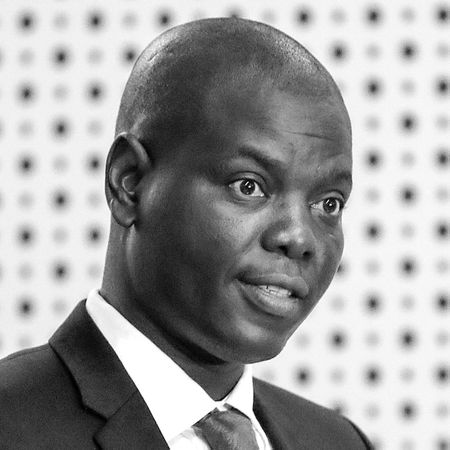There is a strong narrative and a seemingly strident lobby in South Africa that insists our foreign policy should take the form of direct affiliation with the US and the broader West.
It floats in parts of civil society and the media and is closely connected to foreign policy networks abroad. Their thesis is simple: do what they (we) say, they (we) know better.
Our position is just as clear: the world has changed in fundamental ways since our democratic settlement. We must sustain our independence and engage widely while helping to build a more inclusive, law-governed global order.
That is what non-alignment means. It is not anti-West or anti anyone. It is an expression of sovereignty anchored in our Constitution and in international law.
Non-alignment is strategic independence: we engage all partners, make case-by-case decisions using constitutional values and international law, and refuse bloc allegiance. It is active, coalition-building diplomacy. It guides the coalitions we help build.
The Hague Group — which South Africa co-chairs — brings together states coordinating legal and diplomatic measures to uphold international law and protect civilians in Gaza. This is non-alignment in practice: building broad, rules-focused partnerships.
At the heart of our diplomatic action are South Africa’s national interests, a better Africa and ultimately a better world. This means pursuing relations that advance the interests of South Africa, such as national security; food security; healthcare; education; energy and a sustainable environment; and trade and infrastructure investment — and still speak plainly about human rights concerns in bilateral meetings in the African Union and at the United Nations.
Engagement is not endorsement; it is leverage.
Real pressure
Some have argued that our positions have drawn real pressure. However, public debate about the US tariffs on South Africa has often been inaccurate. It is frequently implied that South Africa has been uniquely targeted or that such measures are straightforward punishment for our foreign policy.
In reality, other countries face higher US tariff brackets and additional tariffs on what seem to be ostensibly non-trade barriers.
We are using every channel to stabilise trading relationships and mitigate risk. We are just as serious about diversification. What is clear though is that we should not be coerced to negotiate our socioeconomic policy outside of our borders.
Our participatory democracy has sufficient safeguards to deal with all domestic challenges that arise from time to time — crime, economic growth, economic transformation, unemployment etc. All races in our society are part of our nation-building efforts.
We take a non-alignment posture because automatic alignment narrows our room to manoeuvre and imports other people’s fights into our domestic economy. Strategic autonomy, by contrast, preserves the ability to cooperate broadly and disagree openly — including with friends — while building coalitions around African priorities: regional integration under the African Continental Free Trade Area (AfCFTA), resilient supply chains, food and energy security, and fair representation in global decision making.
We have never shut the door on opportunities for negotiated solutions.
This approach has kept channels open with all major centres of power even when they are at odds — which is essential for consular protection, commercial continuity and crisis response. It has strengthened Africa’s voice in multilateral forums.
And it has allowed South Africa to defend international law consistently, including when taking difficult, high-stakes decisions that some partners opposed. None of these are hypotheticals; they are the daily work of diplomacy in a turbulent world.
We are not blind to the chinks in our armour, and we are fixing them.
First, message discipline: foreign policy is set by the Presidency and executed through the Department of International Relations and Cooperation. We are guided at all material times by our Constitution. That ensures coherence and prevents freelancing from being mistaken for South Africa’s position.
Second, professional capability: we are tightening coordination across the government, investing in legal, diplomatic and tradecraft skills, rationalising our diplomatic footprint and strengthening crisis management so that South Africans feel protected, not exposed, when geopolitics turns rough.
Third, economic diplomacy: we are continually reorienting missions to help tackle South Africa’s triple challenges directly. Ambassadors will be measured on concrete outcomes — market access, investment pipelines, sector partnerships, tourism promotion and student and skills exchanges. Our diplomats are not just messengers; they are a conduit for national development abroad.
As international tensions have escalated, local debate has sometimes become febrile. Unfortunately, there have often been statements presented as fact for which no evidence has been provided, and which are simply not true.
Good faith scrutiny and debate
One example is the claim, repeated by a number of influential public figures, that Iran bribed South Africa to approach the International Court of Justice (ICJ). We will continue to correct such claims, while welcoming good faith scrutiny and debate.
We hope that other protagonists in our public sphere will act in a principled manner by confining themselves to claims for which they have evidence.
We also hope that non-alignment will be judged by its content and not by caricature. Are we consistent on international law? Do we protect civilians and humanitarian access in every theatre? Are we honest with partners even when we disagree? Do we keep faith with constitutional values — dignity, equality, freedom — while advancing South Africa’s interests in a difficult world?
If the answer is yes, then non-alignment is doing its job: keeping South Africa independent, credible and useful — useful to our citizens, to our continent, and to a global system that needs states willing to uphold international law and fair rules for all.
South Africa will continue to engage with all sides and hold the line on law and humanity from south to north, east to west — non-aligned to any of the blocs competing for power in an increasingly multipolar world, but aligned to strategic aspirations as embodied in the Constitution.
It is not an easy path; there are always risks and turbulence. It is, though, the responsible path. DM




